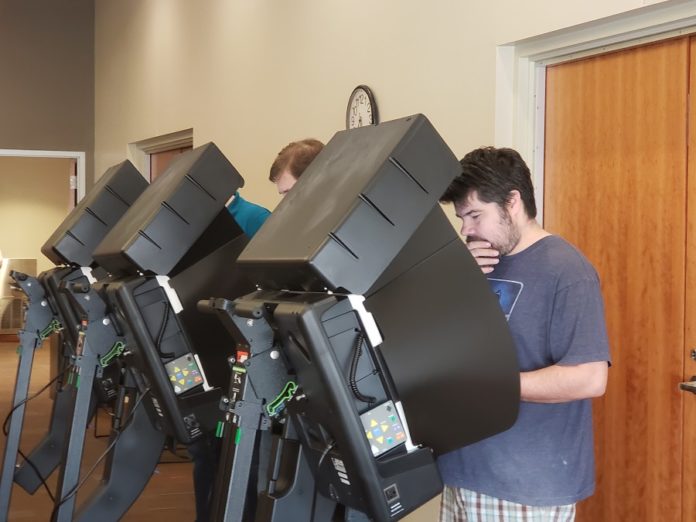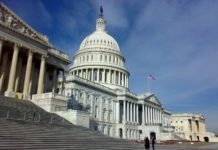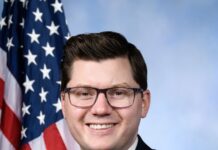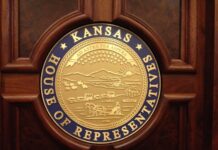There was a time – not very long ago – when young adults in Kansas didn’t show much interest in voting.
Go back to 2014 – the year former Gov. Sam Brownback was reelected – and just 13% of voters ages 18 to 24 years old cast a ballot in that general election, Census data show.
Turnout for young adults paled in comparison to older voters who turned out in a much larger percentage as Republicans kept their lock on state government.
But since then, something’s changed.
Young adult voter turnout in Kansas – and nationally – is exploding because of a mix of factors, whether it’s a more energized electorate, organizations and campaigns reaching out to young voters or increasingly competitive elections.
And in Kansas, some point to a judge’s decision to throw out a state law requiring proof of citizenship to register to vote, something that more heavily affected young and unaffiliated voters.
The emergence of young adult voters is especially pronounced in Kansas. Nationally, it was up about 8.5% from 2016 and even more so in Kansas.
In 2016, about 34% of Kansas voters from 18 to 24 years old participated in the general election, Census data show. It was one of the lowest rates in the country.
By 2020, it had grown 14 percentage points to 48.4%, one of the highest percentage increases in the nation, Census data show.
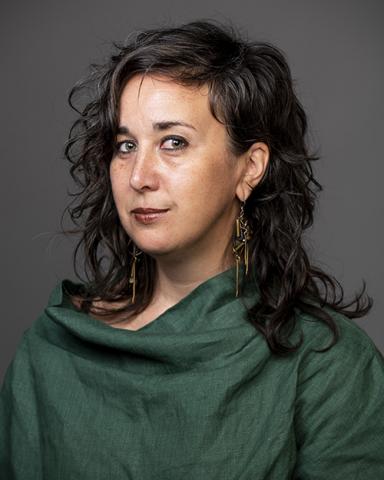
“A 14% increase is an absolutely giant jump between election cycles,” said Abby Kiesa, a youth vote researcher at Tufts University.
“Clearly something was happening amongst young people in Kansas to help them turn out to a greater extent,” Kiesa said.
An analysis of the Census data shows that Kansas saw the ninth biggest percentage increase in voter turnout among 18- to-24-year-old voters not counting the District of Columbia.
New Jersey saw the biggest increase, jumping about 32 percentage points since 2016 while Nebraska was the lowest in the country with a 10.6% decline over the last four years.
Elsewhere across the Midwest, Iowa was second with a 25 percentage point increase, Missouri ranked 27th with a 7.5-point increase and Colorado was 32nd with a 5.5-point increase.
Oklahoma was 42nd with a decline of 2.5 percentage point in young adult turnout.
Kansas Democrats have made a concerted effort to register young adults and turn them out to vote in recent years.
The Kansas Democratic Party spent $30,000 organizing young adult voters on seven state college campuses in 2018.
The party deployed a dozen paid organizers throughout the state, including three at the University of Kansas, two at Kansas State and two at Wichita State.
State Democratic Party statistics showed increases in the 18-to-24 age bracket that year in the counties where there are state universities.
In Crawford County — where Pittsburg State is located — the Kansas Democratic Party said young voter turnout increased to 965 voters from 413 voters in 2014 and 384 in 2010.
In Sedgwick County — home of Wichita State — the number of young voters spiked to 10,633 in 2018 from 5,035 in 2014 and 5,068 in 2010, according to state party data.
A similar trend played out in Riley County — home of Kansas State — where the numbers of 18- to 24-year-old voters increased to 2,577 in 2018 from 892 in 2014 and 600 in 2010.
Meanwhile, the Republicans are seeing their young voters equally as fired up.
Shannon Golden, executive director of the Kansas Republican Party, said Republican congressional candidates Jake LaTurner and Amanda Adkins emphasized young adults in their campaigns.
She said LaTurner, now in Congress, had a campaign staffer dedicated to young voters.

“Both of those campaigns really focused heavily on youth outreach so I am sure that contributed,” Golden said of the surged in turnout during the 2020 election.
“We did see a lot more engagement,” she said.
Meanwhile, Loud Light – the left-leaning nonprofit group that advocates for voting rights – has trained college students to use tablets to register their peers to vote.
Davis Hammet, president of Loud Light, said the group had 19 people on nine college campuses registering voters last year.
He said the group registered 9,500 Kansans to vote last year.
Further, he said, the group contacted more than 200,000 young Kansans last year to make them aware of their options for voting.
“We have a really strong ground game at all the college campuses and we have for years and that’s been growing,” Hammet said
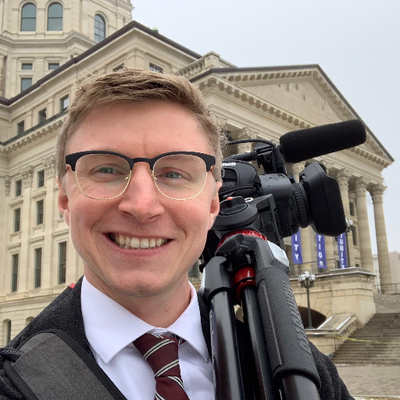
Hammet said the 2014 data showing that just 13% of young adults voted in that year’s general election was the very reason his group was formed.
“Those numbers were so abysmal,” he said.
Some of the credit for registering new voters is given to the relatively new nonprofit online voter registration service known as KSvotes.org.
The group processed 74,330 voter registration applications from the time it launched in October 2017 through the end of 2020.
Of those, 25,810 were 24 or younger at the time of registration, the group said.
Some young Kansas adults believe the surge in young voters is a matter of timing.
Some believe its attributable to the rise of social media and the ease of engaging in politics, the increasing number of young adults getting elected to office or the topsy turvy politics of Donald Trump.
“My generation’s political consciousness is growing,” said Ryan Reza, president of Kansas Young Democrats. “We’re a lot more aware of what’s going on.”

Reza said there are a number of external factors influencing the outlook of young voters whether it was the pandemic, the recession, climate change, LGBTQ rights, abortion rights and the Black Live Matter movement, among others.
“My generation grew up in America where everyone knew what was going on in politics,” Reza said.
“There’s a lot more politics that attack people’s personal lives,” he said.
“It’s more in your face,” he said. “You have to care about certain policies now. People are becoming more aware of that fact that you have to care about these policies.”
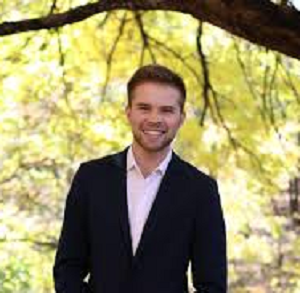
Dalton Glasscock, chairman of the Kansas Young Republicans, sees it in a very similar way although from a GOP perspective that young adults want limited government.
“This past year has shown the importance of government on people’s day-to-day lives,” Glasscock said.
“I think a lot of people realize that government has a place and it has a purpose but it also can overstep its bounds,” he said.
“I think this past year, a lot of young people saw the government overstep a lot of its bounds and I think that’s why you see them more involved because they see the impact government can have on their day-to-day life,” he said.
And while the young adult electorate is generally considered to be more progressive, it hasn’t quite turned out that way in Kansas.
Despite, the large increase in young adult voters in Kansas, Republicans still not only held onto to a U.S. Senate seat but expanded their supermajorities in the Legislature.
Young voters generally preferred President Joe Biden to Donald Trump in 32 of the 39 states for which Tufts University has data.
But Trump won the youth vote in seven states, including Kansas, by less than 10 percentage points in each instance.
In Kansas, Trump won 50% of the young adult vote, according to Tufts’ data.
One thing is clear, young voters don’t necessarily vote as a bloc.
“Just like anyone, you pick up things from those around you,” said Kiesa, the Tufts researcher.
“If you grew up and were taught more conservative values or libertarian values then that could affect how you view the world,” Kiesa said.
“If you grew up in a really Republican area, then you could theoretically take on those values because the people you care about and trust have those values,” she said.
While more young adults are going to the polls, they are still overwhelmed by older voters who may be more inclined to vote Republican.
Young adults are gradually cutting into the base of senior voters, but it’s still not enough to offset their influence.
For instance, in 2020, almost 77% of senior voters 65 and older cast a ballot compared to about 48% of young adults who voted – a difference of almost 30 points.
By comparison in 2016, about 74% of senior voters cast ballots compared to about 34% for young adults – difference of 40 points.
Democratic state Sen. Ethan Corson led efforts to register young voters when he was executive director of the state Democratic Party.
He thinks Democrats do well with younger voters, but there’s more work to do.
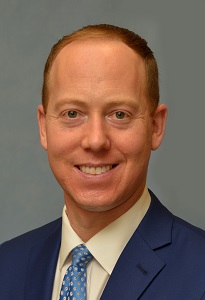
“We are very much headed in the right direction,” Corson said.
“We still have our work cut out for us in terms of getting that group to turnout in the same percentage as 65-and-older voters so we can make sure their voice is heard.”
A much larger percentage of older voters are still going to the polls despite the large increase in young adults going to the polls.
For instance in 2016, voters from 18 to 24 years old made up about 7% of the overall number of voters casting ballots.
Seniors – 65 and older – made up a quarter of the electorate that year.
While those young adults made up of about 10% of the pie in 2020, senior voters constituted about 30% of all voters as did the 45-64 bracket.
A much larger percentage of older voters are still going to the polls despite the large increase in young adults going to the polls.
In 2020,
new nonprofit online voter registration service — known as KSvotes.org — processed more than 23,000 voter registrations from the time it started in October 2017 until the registration deadline for the 2018 general election.






